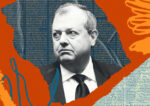Trending
Fed’s stimulus decision is temporary tonic for real estate

Despite sending ominous signals that it would wind down an $85 billion per month bond-buying stimulus program, the Federal Reserve has decided to continue with the program responsible for record low interest rates, the agency’s chairman Ben Bernanke said yesterday.
“What we are going to do is the right thing for the economy,” Bernanke said at a press conference following the announcement yesterday, adding that the Fed would wait for more robust evidence of an economic recovery before moving to scale back on the bond-buying program, what had come to be known as “the taper.”
The announcement is welcome news for the real estate industry, which has been on tenterhooks since the Fed made its initial announcement in May, as The Real Deal reported.
“It was a surprise but also a sense of relief,” said Barbara Denham, chief economist at commercial brokerage Eastern Consolidated.
Industry insiders had been anxious about the possibility of rising interest rates, as well as the so-called fiscal showdown — the battle in Congress over the debt ceiling that has some worried of an economic shutdown, Denham said.
Higher interest rates would have raised the cost of borrowing for commercial buyers, and would also hamper residential market activity by upping the size of homebuyers’ monthly mortgage payments, experts told The Real Deal in July. And if rates rose too quickly, home price growth would be hurt, Doug Perlson, the CEO of online brokerage RealDirect, told TRD at the time.
The Fed’s decision not to pull back was a sort of tonic to “at least alleviate some of the pain” that commercial buyers and lenders were feeling from the uncertainty, Denham said. Cap rates will remain low, and investors will be able to nab capital to fund their purchases.
A stronger New York City office market with increasing rents have reduced the potential harm rising interest rates could have on property values, as landlords will be able to hike rents to offset the cost of a pricier mortgage, according to John Bejjani, an analyst at Newport Beach, Calif.-based Green Street Advisors.
“To the extent the Fed’s decision to hold off on tapering sustainably slows the upward march in long-term rates,” he added, “New York office landlords likely stand to benefit.”
Observers did warn, however, that the announcement was merely a band-aid on a serious wound.
Buyers have been oblivious to long-term interest rates when making their investment decisions, which is a strong sign of a bubble, said Massey Knakal Realty Services Chairman Bob Knakal.
And when the Fed does eventually scale back, the agency is expected to stop buying U.S. Treasury securities, which would raise the yield on the 10-year Treasury note, Knakal said. Since commercial lenders look at the 10-year rate when making financing decisions, interest rates would rise, leading to rising cap rates and lower property values.
But the Fed would likely continue with the purchase of mortgage-backed securities to maintain the housing market recovery, and keep short-term interest rates low, Knakal added.
“Quintessentially, it’s kicking the can down the street,” he said, “except the street is getting more narrow.”




